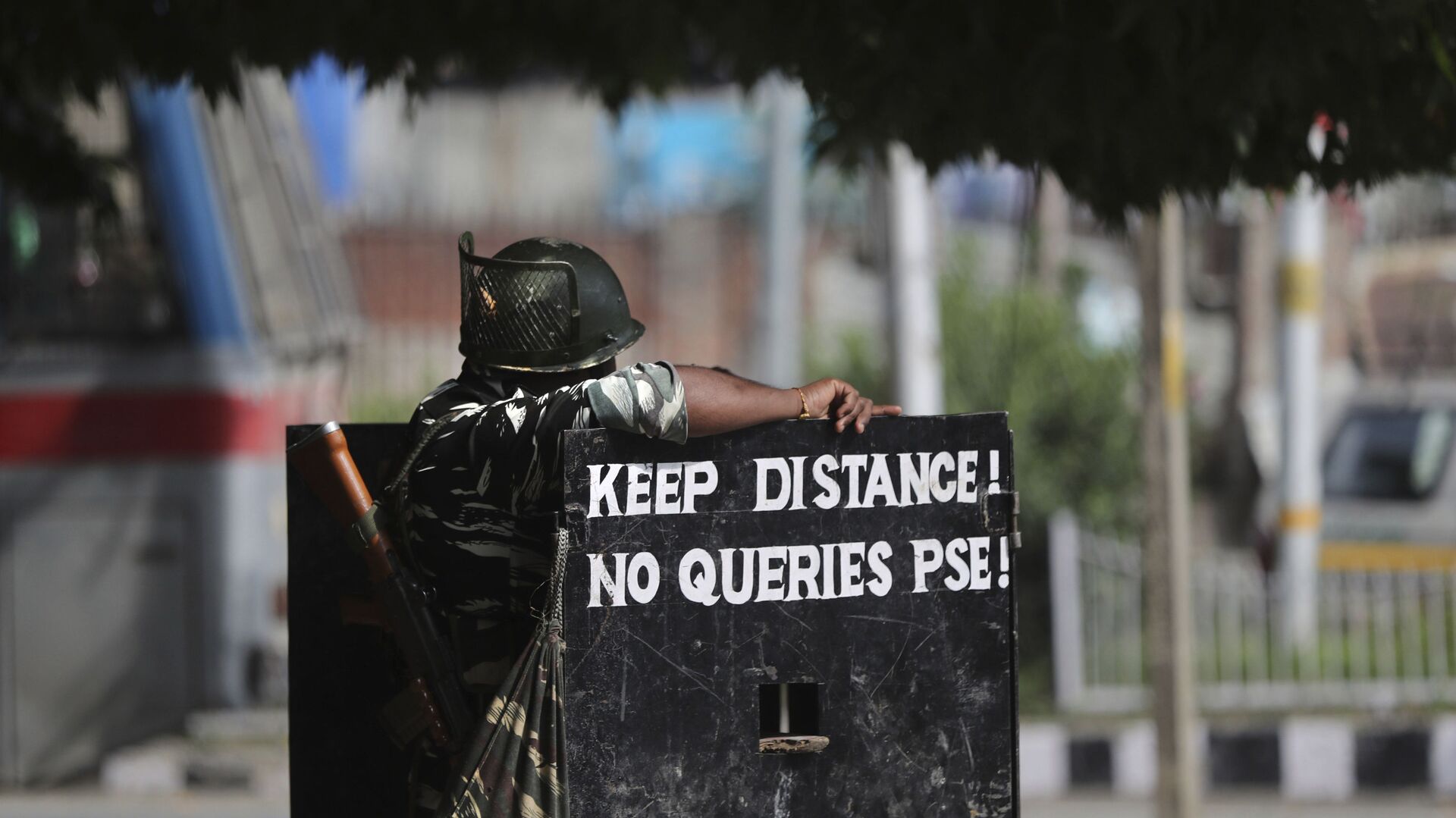A federal adviser to India's Ministry of Information and Broadcasting on Tuesday accused a top Indian university of publishing "subversive" separatist literature after one dissertation accused Delhi of carrying out a "forceful occupation" in Kashmir.
Read some 'research' by self-confessed 'disturbed' souls at @TISSpeak, flagged by @Abhina_Prakash
— Kanchan Gupta (@KanchanGupta) June 22, 2021
Wondering if Tata Institute of Social Sciences, set up in 1936 as 'Sir Dorabji Tata Graduate School of Social Work', has mutated into 'Tata Institute of Subversive Separatism'.
1n
Kanchan Gupta, who also sits on one of Prime Minister Narendra Modi's federal committees, further blasted the Mumbai-based Tata Institute of Social Sciences (TISS) for producing "pamphlets" in the guise of research papers.
"Wondering if the Tata Institute of Social Sciences, set up in 1936 as Sir Dorabji Tata Graduate School of Social Work has mutated into Tata Institute of Subversive Separatism", remarked Gupta.
The federal adviser additionally trashed TISS' response to the criticism around the research paper as "balderdash".
"With reference to a recent social media post regarding a student's Master's dissertation, we would like to state that the institute doesn't endorse the title. Necessary action has been initiated for fact-finding", TISS said in its defence.
The research paper, titled "The Place of Kashmir in Indian Nationalism", was authored by Master of Social Work in Rural Development student Saem Hashmi.
Not only does it accuse India of being a "forceful occupier" in Kashmir, but also claims that the region has witnessed "subjugation and oppression of the worst kind".
Further, the thesis states that Indian forces were only mandated to stay in Kashmir by its king until invaders from Pakistan were driven out from the region, a reference to a 1947 event when Jammu and Kashmir was ruled by Hindu King Hari Singh.
The thesis has also been criticised by other prominent experts, including Indian academic Abhinav Prakash. In fact, Prakash flagged another thesis by a TISS student on Monday.
Another study from TISS. Author also talks about her mental status & says that thesis supports territorial disintegration of India. Maybe TISS will say it doesn’t endorse this too! What’s this fraud of academic freedom that only kind of narrative is coming out of TISS? @AmitShah pic.twitter.com/kO9Rh5sjmt
— Abhinav Prakash (@Abhina_Prakash) June 21, 2021
After India and Pakistan gained independence from Britain in August 1947, Jammu and Kashmir was among hundreds of princely states given the option of either being with New Delhi or Islamabad.
Initially hesitant to join either India or Pakistan, Hari Singh signed the "Instrument of Accession" with New Delhi in October 1947 after an invasion by Pakistani Islamist militants which was meant to take control of the Muslim-majority region.
India's then-Prime Minister Jawaharlal Nehru wrote to the United Nations Security Council (UNSC) demanding an end to Pakistan's "aggression" in the region, which was followed by the UNSC passing "Resolution 47".
UNSC Resolution 47 calls for the withdrawal of Pakistan's "proxies" from the region, followed by a phased withdrawal of Indian troops, which would then pave the way for conducting a plebiscite in the region.
However, India has consistently accused Pakistan of being involved in terrorist activities in the region through its alleged proxies, a charge that has resonated from 1947 to the present. Islamabad, on the other hand, also accuses New Delhi of not fulfilling the Resolution 47 clause to withdraw troops from the region.




